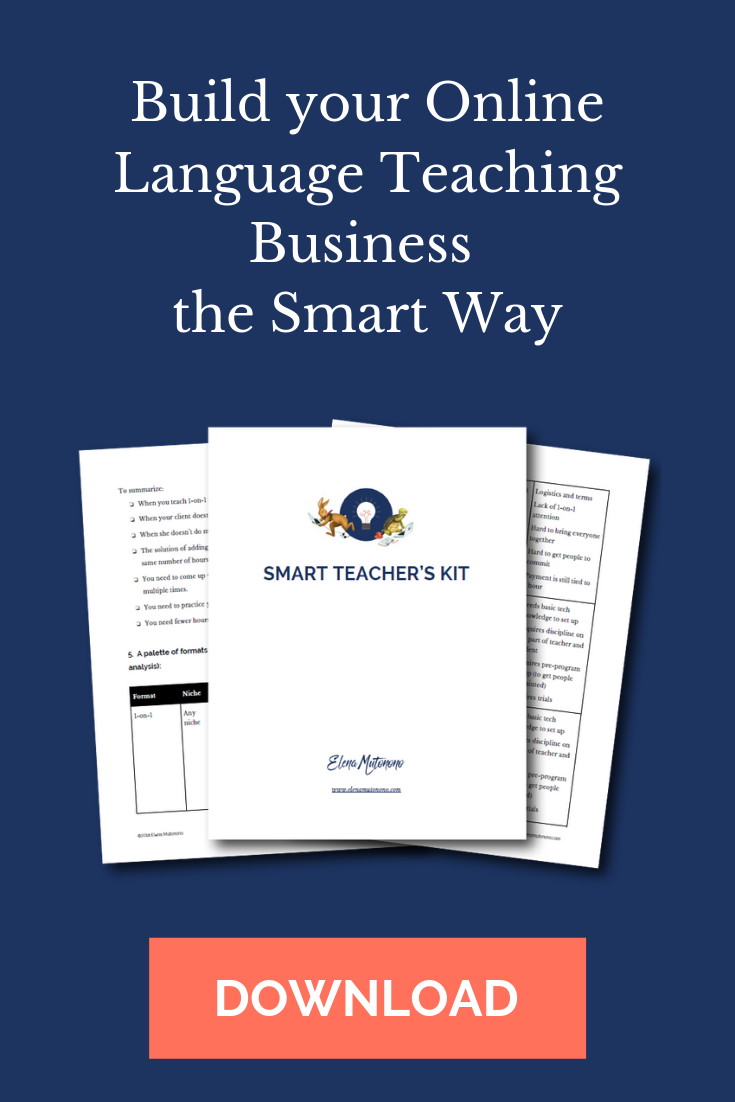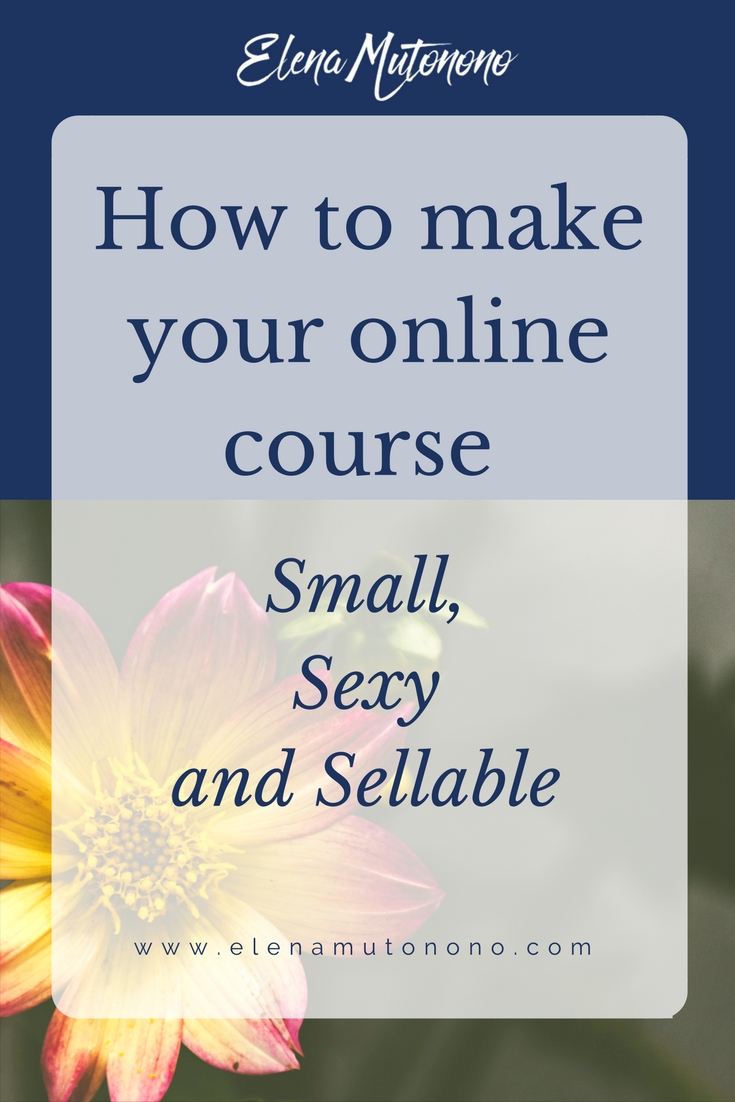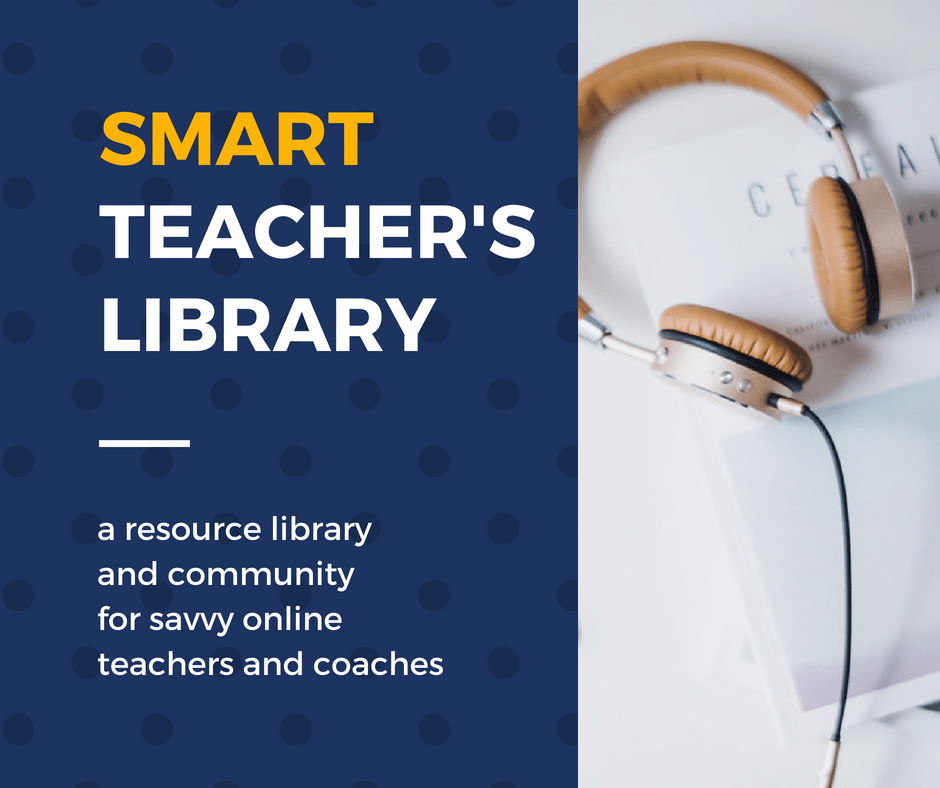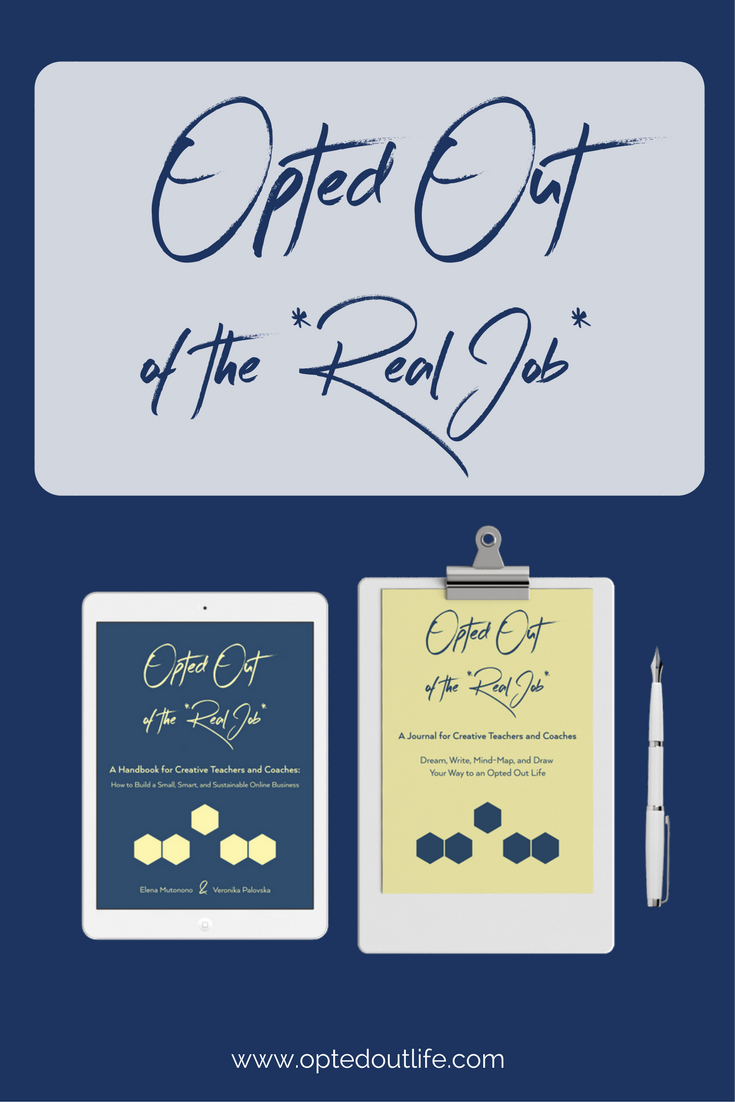If you don’t want to use social media, webinars will help you grow your audience just as effectively. If you are able to collaborate with another teacher/coach with a bigger audience you won’t even need to worry about where to find the people.
One of my clients, Lucy Samuels aka Lucy the Language Coach, has recently run a webinar and used that platform to get several new customers. I’ve invited her to share her insights about doing webinars because I believe she’s really skilled at local and virtual networking.
Recently Lucy has been featured on the Squarespace blog where she shared 3 ways to boost your job search from home. Lucy and I have been working for 4 years, and in this time she was able to leave her job and structure the business around her schedule, in a smart way. [E.M.]
About Lucy

I’m a Communication + Career Coach who helps corporates + corporate misfits develop the communication confidence to share their professional stories and land amazing opportunities. You can connect with me on LinkedIn or visit my website.
How has your business model changed over the years that you’ve taught online? What are some things you have now that you wish you’d done sooner?
Well, for starters, location is no longer an issue. That sounds obvious, but I used to work with both adults and children inside my home, and I even rented part-time office space at one point! Trying to maintain my family’s privacy while having students and clients in my home or paying for space are challenges I have overcome since shifting to an online format.
Also, since I started teaching online, I have been able to provide services that go beyond the 1:1 teaching model. I edited, proofread, and sometimes rewrote resumes and other documents for a lot of in-person business English clients, but I wasn’t charging current clients for it.
It hadn’t occurred to me to offer that as a separate service that people would pay for. My packages were really just 1:1 lessons that I sold at a bundled rate. Now I offer services at 3 different price points but with the same transformation target. That’s not as easy to do with my previous business model.
My packages were really just 1:1 lessons that I sold at a bundled rate. Now I offer services at 3 different price points but with the same transformation target. ~ Lucy SamuelsClick To Tweet
I do wish I had practiced more of what I preach a lot sooner. I’m always telling people they shouldn’t stuff themselves into a job title or template, that they should first define their goals and figure out the best way to showcase their ability to reach those goals. Yet, I was attached to my title, Lucy the Language Coach (I mean, who doesn’t love alliteration, right?) and the sweet, little caricature that I used as a logo.
Instead of explaining what I did and how I could help people, I spent much of my creative energy trying to figure out how resumes and job interview prep could fit my clever title. I knew that I was teaching practical speaking + writing skills, but nearly half the people I worked with were native English speakers and most of them couldn’t imagine needing a language coach to help with their job search.
As painful as it was, I dropped the cutesy name and just told people in 1-2 sentences that I could help them develop the communication confidence they needed for their job searches. I shared how I drew on my own experiences + training as a former job seeker + corporate legal operations professional, career changer, language learner, dyslexia tutor, and business English coach.
And when I stopped fixating on my job title, more and more people felt comfortable enough to share the communication challenges that hindered their own job searches or career progress. At my core, I’m always Lucy the Language Coach, but I needed to move away from that title for a while to focus more on what I help people do, rather than what to call myself.
During the recent webinar you were able to sell something other than 1:1 coaching. What did you sell and why?
It’s safe to say that most of the webinar attendees were resume DIYers, and I wanted to promote a service that’s just for them. I focused on Look Good on Paper, an affordable 1:1 resume review service that targets a job seeker’s specific resume challenges but doesn’t require an appointment.
I think it’s my most popular service because it’s simple yet helpful. When you purchase Look Good on Paper, you answer a few questions and send over your resume. I use that information to create a customized video assessment that helps you figure out what’s working for you and how to improve your resume so recruiters + hiring managers see you, hear you, and hire you.
***
Wondering how to shift from 1:1 lessons into something more sustainable? Here’s an invitation to join my workshop and learn how you can do it:
What prep work should one do before they decide to run a webinar?
Well, there’s the technical side of prepping for a webinar, and then there’s everything else. It’s important to be comfortable with the technology you’re going to use. The webinars I have facilitated have always been hosted by someone else, so I didn’t get to choose the platform. And that turned out to be a good thing because it was one less thing to overthink.
If it were up to me to choose a platform, I’d want to use something that wouldn’t require a lot of people to download or sign up for something they didn’t already have. Accessibility is key. So is customizing the settings so that they’re right for your webinar. Think about settings like screen sharing, waiting rooms, registration, recording capabilities and, of course, security from hackers.
On the other side of prepping for a webinar, it’s important to be comfortable with your content. That gives you the most presentation flexibility. You can do something more interactive and add Q&A, while feeling confident that you gave attendees what they came for if you know the subject matter well. You’ll ditch the text-heavy slides without feeling like someone has snatched your training wheels from under you.
How did you make your webinar unique?
Since my recent webinar was hosted by Ladies Get Paid, a professional development community for women, I used archetypes of women who are trying to optimize their resumes. After I introduced each archetype, I asked the attendees if they could identify with any of them.
I got such affirming feedback, with people referring to themselves as the names of the archetypes. Each archetype felt like a real person and I explained that person’s resume issue and what course of action I would recommend to help them overcome it.
I didn’t use a lot of text in my slides because I’m pretty sure no one signed up to hear me read aloud. Instead, I used brief bullet points to make sure I stay on track and expound on everything that I’ve promised to cover.
I also ended up taking questions after each archetype. There were 100+ attendees and I wanted to make sure I paced myself and answered as many questions as possible. I didn’t plan it that way, but it made more sense to answer questions before moving onto the next subtopic.
What tips would you give to someone who wants to run a webinar? What should they focus on more?
Start small. There are so many moving parts when you’re running a webinar and you don’t want to spread yourself too thin. Before I spoke to an audience of 100+, I had a smaller audience of 10. It was painful, but I watched the video and found some things I wanted to work on for my next webinar.
Consider partnering with someone else for your first webinar or even the first few. I partnered with communities that had built-in audiences so that was one less thing I had to worry about.
Think of ways to engage an online audience. You could include ice breakers or even create an interactive format if the audience is small enough.
In what ways has coaching made your business smarter? How long did the process take you?
I’ve done some variation of smart coaching a few times since I decided to move my business online. Each coaching engagement focused on specific issues that I wanted to solve, so it was always a results-focused experience. My first smart coaching experience helped me understand some central ideas and best practices for developing an online business. In particular, I learned about niches and realized that I didn’t have one.
I have expertise in language-based learning disabilities, brain-friendly second language acquisition, job interview prep, and resume writing, and I was struggling to figure out a niche that incorporated all of that. With smart coaching, I got back to my core: helping people develop communication confidence.
The fact that I’m a language coach with expertise in language-based learning disabilities and second language acquisition is a bonus, so I definitely attract people who are looking for someone who’s well versed in either of those. But based on my experience, expertise, and clients’ needs, I decided to focus on communicating to land professional opportunities.
Later, when I felt discouraged because I didn’t know what kind of service I could offer to create a sustainable business that would allow me to help people while working in an unrelated, full-time job, I sought smart coaching again. Through that experience, I learned that I didn’t need to stress myself out to make a difference or be paid for my work.
Elena and I brainstormed ways to move away from done-for-you resume writing services and focus on a done-with-you model. I love writing + designing resumes for people but it’s not my main service. I spend more time creating resources to help people articulate their unique value in a job search or career pivot.
I’m thankful for the opportunities I discovered + created and for the talented online teachers I’ve met in the smart teaching community. Getting to know other people who have niched down helped me rest assured that I didn’t need to be all things to all people and that I didn’t even need to focus on native language, grammar, or accent.
Have you run webinars or other online events like virtual summits or conferences? Please share your experience or questions in the comments! Thank you for tuning in ~ Elena.

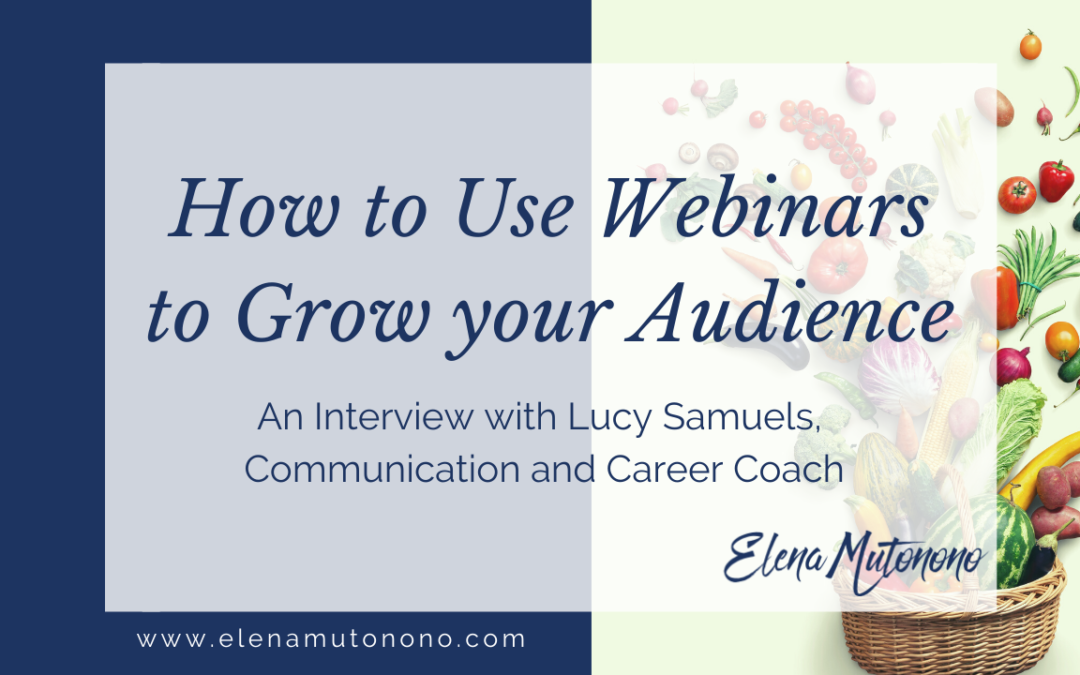
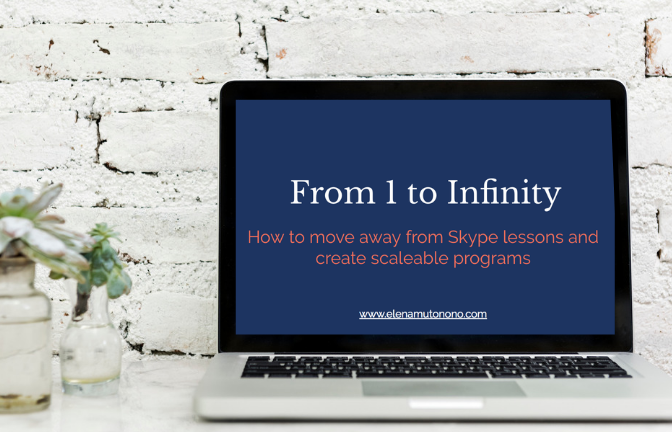
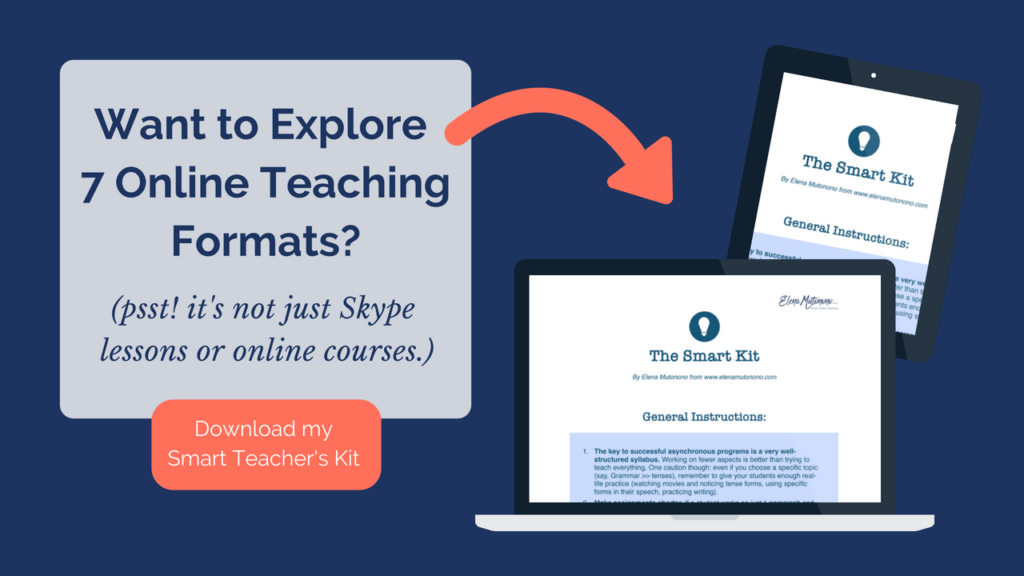
 Welcome to my nook where *Big Magic* happens. My name is Elena Mutonono, I help small business owners package their services as digital products and sell them online. I want you to work smarter, not harder. Increase your impact beyond your current face-to-face clients. Grow your business as you reach more people all over the world.
Welcome to my nook where *Big Magic* happens. My name is Elena Mutonono, I help small business owners package their services as digital products and sell them online. I want you to work smarter, not harder. Increase your impact beyond your current face-to-face clients. Grow your business as you reach more people all over the world.
